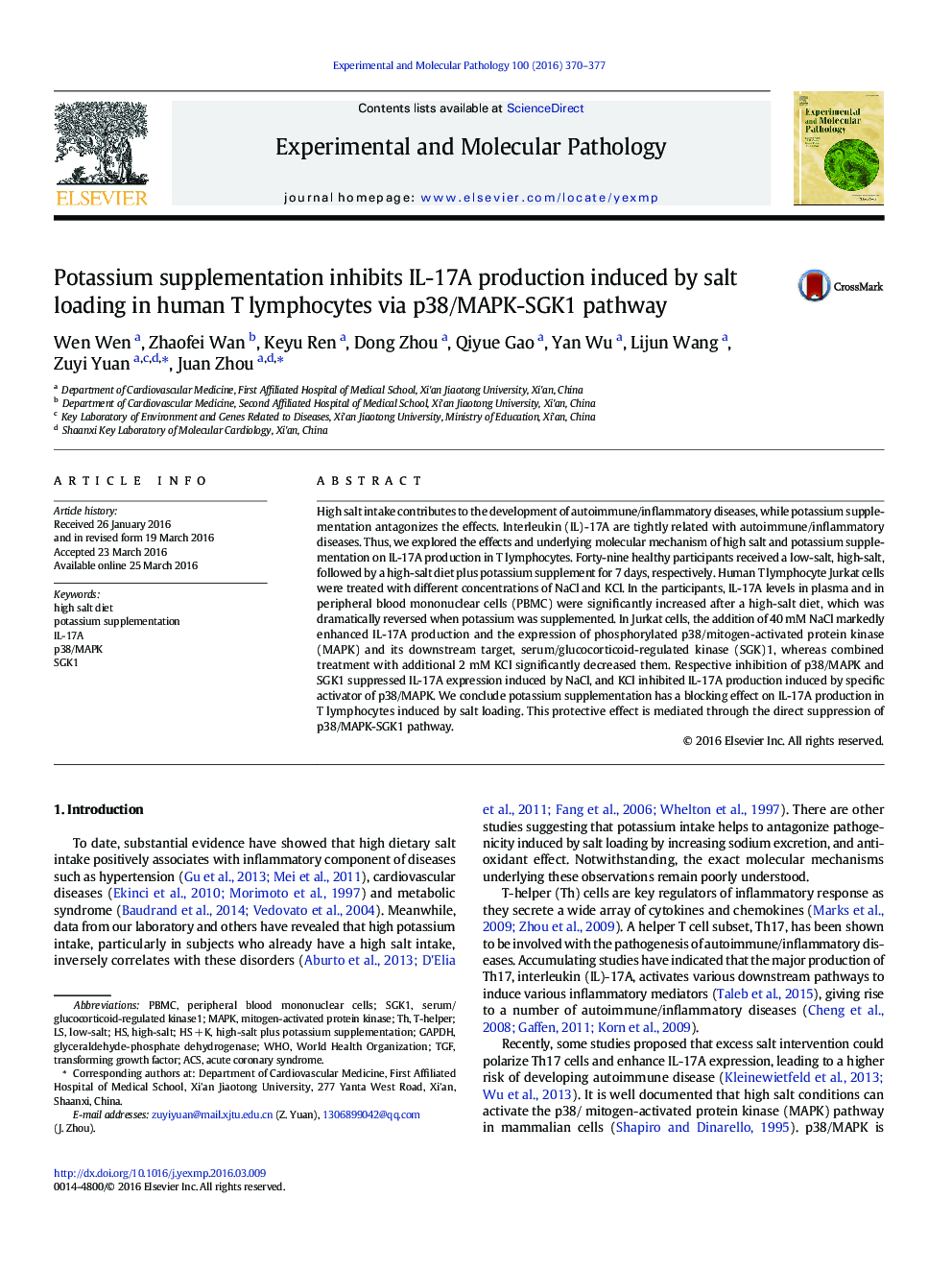| کد مقاله | کد نشریه | سال انتشار | مقاله انگلیسی | نسخه تمام متن |
|---|---|---|---|---|
| 2774849 | 1567916 | 2016 | 8 صفحه PDF | دانلود رایگان |

Highlight
• Data from intervention study showed high salt intake increased plasma IL-17A level.
• Potassium supplementation has a blocking effect against salt-loading-induced IL-17A production in T lymphocytes.
• The protective effect was mediated through suppression of p38/MAPK-SGK1 pathway.
High salt intake contributes to the development of autoimmune/inflammatory diseases, while potassium supplementation antagonizes the effects. Interleukin (IL)-17A are tightly related with autoimmune/inflammatory diseases. Thus, we explored the effects and underlying molecular mechanism of high salt and potassium supplementation on IL-17A production in T lymphocytes. Forty-nine healthy participants received a low-salt, high-salt, followed by a high-salt diet plus potassium supplement for 7 days, respectively. Human T lymphocyte Jurkat cells were treated with different concentrations of NaCl and KCl. In the participants, IL-17A levels in plasma and in peripheral blood mononuclear cells (PBMC) were significantly increased after a high-salt diet, which was dramatically reversed when potassium was supplemented. In Jurkat cells, the addition of 40 mM NaCl markedly enhanced IL-17A production and the expression of phosphorylated p38/mitogen-activated protein kinase (MAPK) and its downstream target, serum/glucocorticoid-regulated kinase (SGK)1, whereas combined treatment with additional 2 mM KCl significantly decreased them. Respective inhibition of p38/MAPK and SGK1 suppressed IL-17A expression induced by NaCl, and KCl inhibited IL-17A production induced by specific activator of p38/MAPK. We conclude potassium supplementation has a blocking effect on IL-17A production in T lymphocytes induced by salt loading. This protective effect is mediated through the direct suppression of p38/MAPK-SGK1 pathway.
Journal: Experimental and Molecular Pathology - Volume 100, Issue 3, June 2016, Pages 370–377